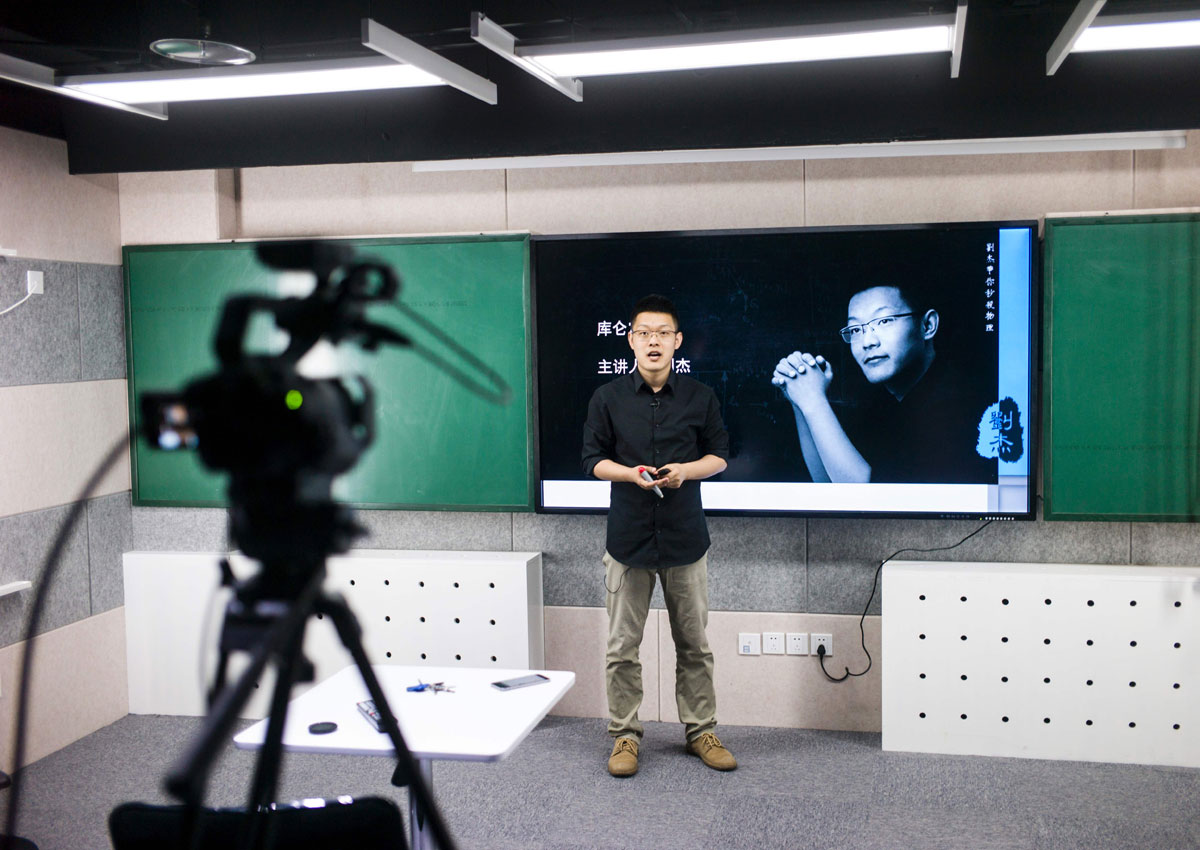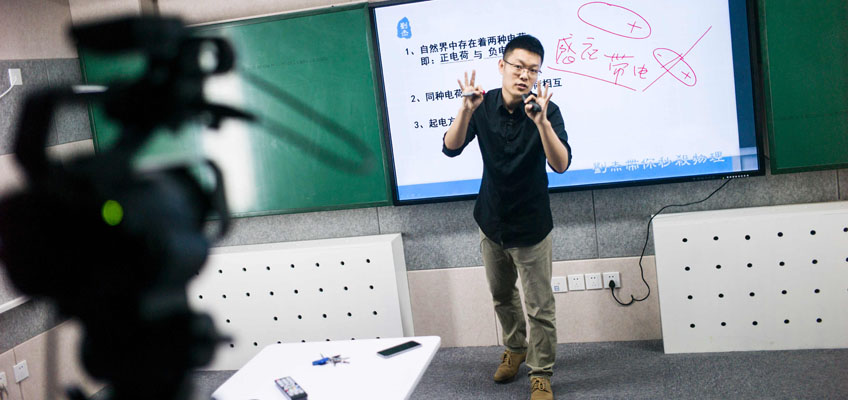BEIJING – With a following of several million teenage fans, China’s Liu Jie says he can earn nearly US$50,000 (S$67,700) a month from his online videos and is even recognised on the street. But he is no pop star.
A high school physics tutor, Mr Liu belongs to a growing cohort of educators feeding the country’s insatiable demand for after-school online study.
The industry is fuelled by the vast number of Internet users in China – the most in the world – combined with the annual university entrance exam, a national obsession that decides the fate of millions.
The gruelling two-day “gaokao” begins today, with police set to cordon off streets to ensure silence for students.
“The gaokao is such a huge deal in China… that’s where the main demand is,” said Mr Liu, fresh from recording a lecture on static electricity.
Mr Liu was a private tutor before he began filming lessons for an online platform that sells them to hungry students.
“Students will often pursue a teacher like they pursue celebrities,” said Mr Liu.
When he reached the limit of 5,000 friends on social media platform WeChat, he added another account which quickly gained 3,000 more.
The almost unlimited size of an online classroom means that top teachers can earn a fortune.
Mr Liu can rake in up to 300,000 yuan (S$61,800) a month ahead of the exam, generating an annual income of about 2.8 million yuan – more than thirty times the standard wage of a high school teacher in Beijing.
“I didn’t think I could make so much money,” he said. “Teaching has always been seen as a poor profession.”
China has long had the world’s largest number of Internet users – now more than 650 million – but the rise of smartphones has pushed online courses into the mainstream.
Reports of teachers making millions each year from such courses showed online teaching was “in the ascendent” said Xiong Bingqi, vice-president of independent think-tank 21st Century Education in Shanghai.
“Teachers earning more than other online celebrities shows their abilities and the choices of consumers,” he said.
Ahead of the gaokao, high-school students study from shortly after dawn to well beyond sunset.
In 2012, the nation was shocked when it emerged that one school had provided students with intravenous drips of amino acids to give them strength to continue working.
Cao Wei, an online mathematics tutor begins live-streaming his classes at 11pm, often to several thousand people. “I’ve shed more than seven pounds in the last two months,” he said of his late-night schedule.
But he can earn some 80,000 yuan each month.
“He’s different than teachers at school. They are often long-winded, Cao is more simple,” 17-year-old high school student Li Jiayao said.
Celebrity teachers are not unique to mainland China.
In South Korea, online cram school tutors can earn as much as US$8 million each year.
And Hong Kong is home to television celebrity “tutor kings” and “queens”.
But authorities seem concerned that school teachers may abandon the classroom for greener pastures online.
An Education Ministry official told state media in March that school teachers moving to Internet education might “affect their ordinary classes”, but added such moves would not be banned.









